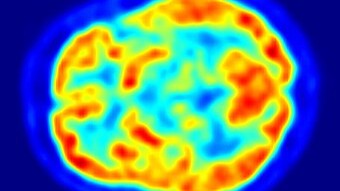The COVID Brain
Five years after the Coronavirus Disease 2019 (COVID-19) pandemic, scientists are gaining a clearer understanding of how the virus can affect the body long after an infection seems resolved. These effects, known as post-COVID-19 (long COVID), can lead to lasting, sometimes invisible changes in various body parts. An infection can cause chronic lung, heart, gut, and brain symptoms.
Patients often complain of headaches, dizziness, and confusion at the height of an infection. Those infected may struggle to find the correct words when describing an event; memory gaps and difficulty with concentration and attention may occur acutely. A few may develop an acute ischemic stroke.
While COVID-19 can trigger widespread inflammation that typically subsides once the virus is cleared from the body, for some, the illness may either rage intensely or persist as a slow burn. Long COVID can contribute to anxiety or depression and can exacerbate existing mental health conditions. Persistent inflammation damages neurons and contributes to conditions associated with COVID-19. The virus may also disrupt blood-brain barrier function. Virus fragments could linger in the brain long-term.
Approximately 20% of COVID-19 patients reported experiencing brain fog three months after their initial infection. Brain fog is characterized by various symptoms, including confusion, forgetfulness, mental exhaustion, poor concentration, difficulty finding the right word, slow mental processing, and fatigue. In addition to COVID-19, brain fog can be triggered by various conditions, such as diabetes, low blood sugar levels, hormonal changes, poor nutrition, inadequate sleep, stress, anxiety, depression, and attention deficit disorder.
Recent research shows that those with brain fog following an acute COVID-19 infection have the virus active in the intestinal tract. Changes in the intestinal microbes reduce serotonin production, impairing cognitive functioning and leading to brain fog symptoms.
Improved sleep hygiene, eating healthy and nutritious meals, and getting 30 minutes of daily physical activity can help relieve brain fog symptoms. Taking short breaks throughout the day can prevent overworking the brain. Nonsteroidal anti-inflammatory (NSAID) medications may provide relief. SSRI antidepressants that increase serotonin levels and psychostimulants may help alleviate some symptoms.
